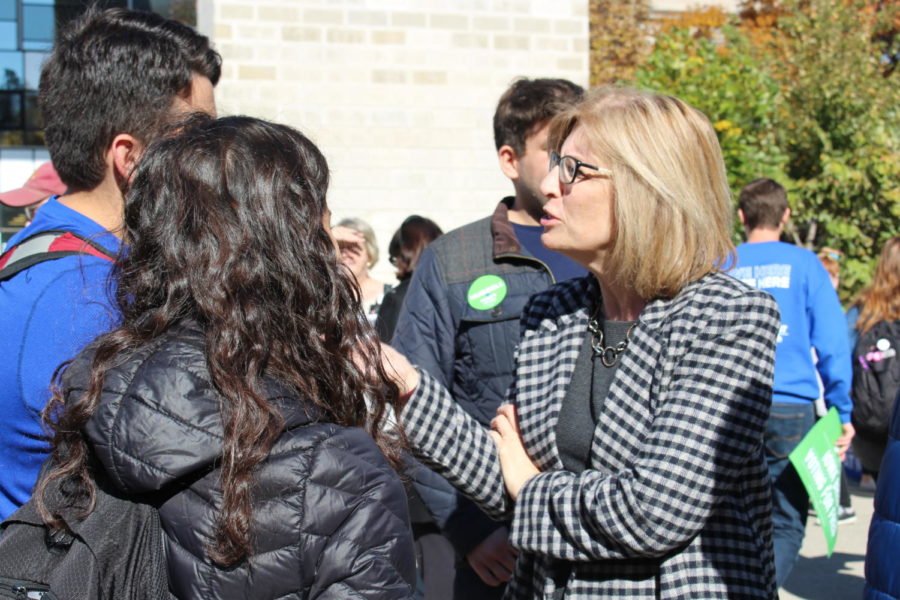Democrat Rita Hart announces plans to request results from Iowa’s 2nd District to be reviewed after certification
December 3, 2020
Democratic nominee Rita Hart plans to file a petition to the House Committee on Administration under the Federal Contested Election after Iowa’s 2nd congressional race and may result in a decision made by the Democratic-controlled U.S. House of Representatives.
The race has come down to six votes after a districtwide recount in all 24 counties resulting in a win for Republican Mariannette Miller-Meeks after Iowa’s state canvas board certified the results for the race Monday.
Kelly Shaw, associate teaching professor in political science, said this race is important for both Democrats and Republicans because it is an open seat. The 2nd Congressional District is currently represented by Democrat Dave Loebsack and has been for the last 14 years.
“When open seats take place, anything can happen,” Shaw said. “So it was a good test to see where Iowa was in terms of ideology, partisanship and polarization.”
Three out of Iowa’s four districts were represented by Democrats, but after the 2020 election, Republicans flipped the 1st District while maintaining their long hold on the 4th District as well.
Shaw also said this seat is important for the state because Iowa only has four congressional votes.
“I think that shows importance not only in terms of where the Republican Party is in Iowa and perhaps it’s the belief that the Republican Party is losing voters is a bit overexaggerated in that regard,” Shaw said.
If the certified results hold through any additional legal challenges, three of Iowa’s four congressional districts will be represented by Republicans, an inverse map of results for 2018.
Mack Shelley, chairman of the political science department, said there are several rounds in the process before Miller-Meeks is seated.
“I think the Democratic National Party would be really interested in trying to have this lined up Rita Hart holding a Democratic seat in the 2nd District,” Shelley said.
Shelley said apart from state-level action, in the end, the House of Representatives has the right to refuse to seat certain members.
Democrats did hold their majority in the House but it’s dwindled. Shelley said these slim margins could have major implications on what legislation makes it through the House.
“Structurally things wouldn’t look a lot different but it will be a much more tenuous majority,” Shelley said. “So it will be much harder for Democrats to get purely Democratic legislation through.”
Shaw said a big takeaway from this election was President Donald Trump’s popularity in the state because of his ability to appeal to rural voters who are pleased with the economy as well as both parties’ ability to mobilize their base of voters during the pandemic.
Shelley said Republicans did a much better job with grassroots mobilization than Democrats in Iowa and across the country.
“Democrats who would have been normally out knocking doors were much less likely to do that,” Shelley said. “Republicans didn’t seem to flinch; they were out anyway. I think compared to what the Democrats did, they did a much better job getting out their vote.”
Shaw and Shelley said this could partially be due to the pandemic but Shelley said Republicans are more successful at getting voters to register and identify as Republican.
Shaw said since this was not Miller-Meeks’ first time running for the seat, name recognition and canvassing was likely what this nail-biter race came down to. Miller-Meeks secured 196,964 votes to Hart’s 196,958.
“While it is rare, every vote can matter,” Shaw said. “To have almost 400,000 votes come down to six, that is fairly amazing in that regard, get out and vote.







